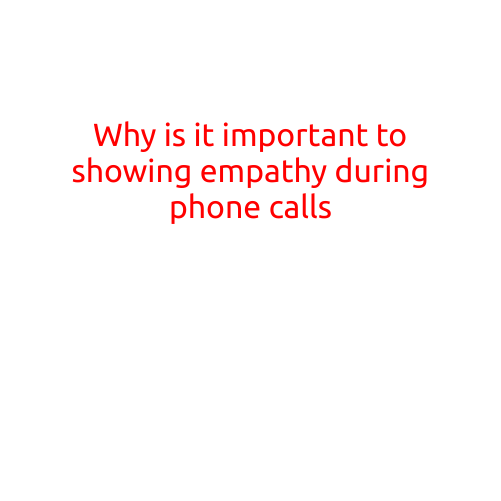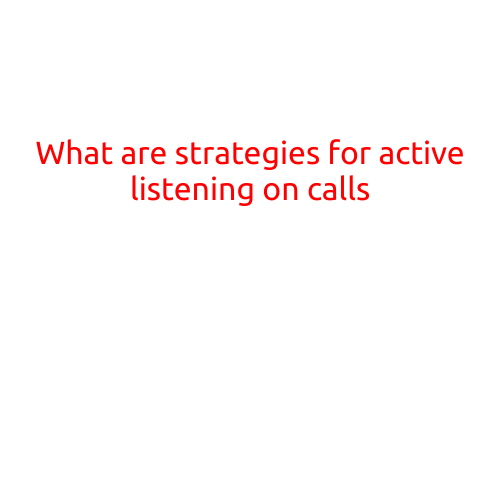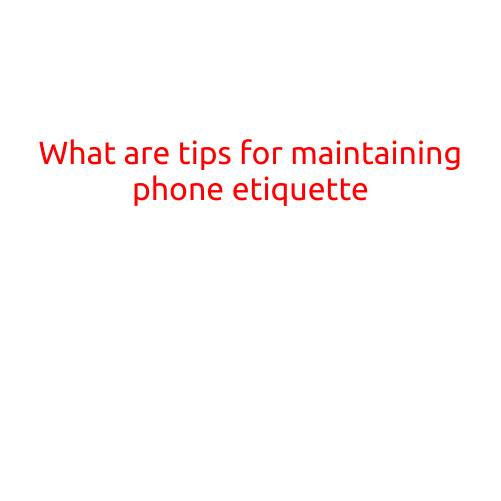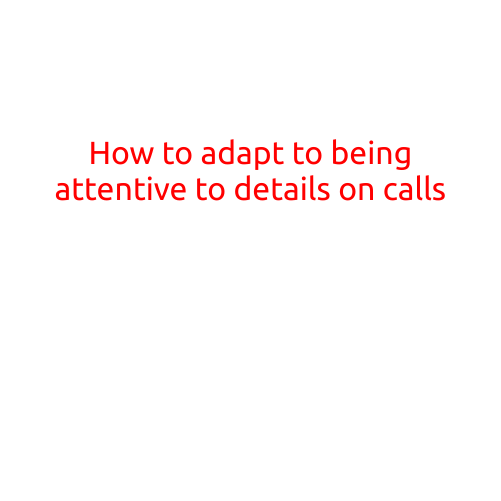
Why is it Important to Show Empathy During Phone Calls?
In today’s fast-paced world, phone calls are a common mode of communication that can often feel impersonal and cold. Despite the digital nature of phone calls, it’s crucial to show empathy towards the other person on the line. Empathy is the ability to understand and share the feelings of another, and when done correctly, it can make a significant difference in building strong relationships, resolving conflicts, and even improving overall communication.
Why Empathy Matters in Phone Calls
When you show empathy during a phone call, you’re not only demonstrating that you care about the person on the other end, but you’re also showing that you’re actively listening to them. This can lead to a number of benefits, including:
- Improved Communication: When you show empathy, you’re more likely to understand the other person’s perspective, which can lead to more effective communication and a better outcome in the conversation.
- Increased Trust: When people feel heard and understood, they’re more likely to trust the other person. Trust is the foundation of any strong relationship, and it’s essential for building a strong foundation for future conversations.
- Conflict Resolution: Empathy can help to diffuse tense situations and resolve conflicts more effectively. When both parties feel heard and understood, they’re more likely to find a compromise and resolve the issue amicably.
- Emotional Connection: Showing empathy during a phone call can create a strong emotional connection with the other person. This can lead to a deeper understanding of each other’s needs and concerns, which can lead to more meaningful relationships.
How to Show Empathy During Phone Calls
So, how can you show empathy during phone calls? Here are a few simple tips to get you started:
- Active Listening: Pay attention to what the other person is saying and show that you’re engaged in the conversation. This can be as simple as nodding your head or saying “uh-huh” to show that you’re following along.
- Reflective Listening: Reflective listening involves repeating back what the other person has said in your own words. This can help to ensure that you understand their perspective and show that you’re actively listening.
- Supportive Language: Use supportive language such as “I understand” or “That makes sense” to show that you’re empathetic and understanding.
- Open-Ended Questions: Ask open-ended questions that encourage the other person to share their thoughts and feelings. This can help to create a sense of connection and understanding.
Conclusion
Showing empathy during phone calls is a crucial aspect of effective communication. By actively listening, reflecting back what the other person has said, using supportive language, and asking open-ended questions, you can create a strong emotional connection with the other person and build a stronger relationship. Remember, empathy is a powerful tool that can go a long way in resolving conflicts and building trust. So, the next time you’re on a phone call, make sure to show empathy and watch your relationships thrive.





